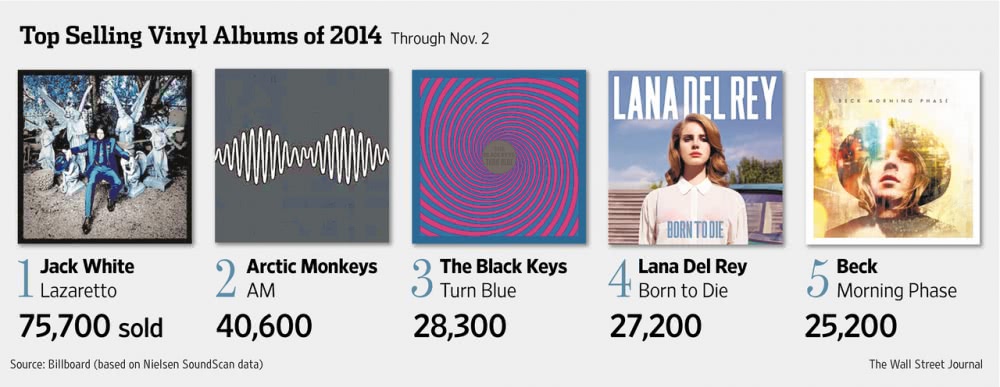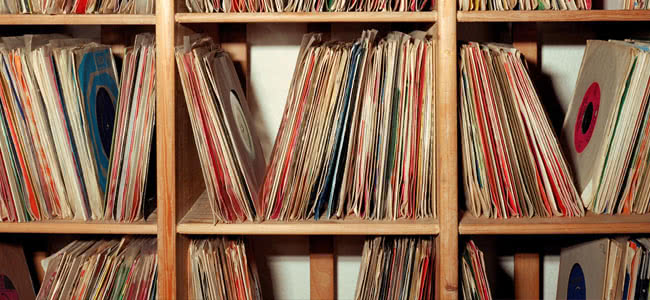2014 could well go down in history as the year that the vinyl resurgence became an undeniable fact and not merely something music industry pundits have been talking about without any real numbers to back it up. Vinyl now makes up about 3.5 percent of album sales.
While this may seem a minuscule amount in the grand scheme of things, and granted, it is meagre compared to a dominant force like digital sales, this is up from the 0.2 percent it was pulling in just 10 years ago, and up from more recent figures which had vinyl sales at 2 percent of album sales.
In addition to covering the seemingly forgotten format’s remarkable UK sales, earlier this year, Tone Deaf reported on online retail giant Amazon and US clothing chain Urban Outfitters, who together stand as two of the biggest vinyl distributors in the world. But what exactly are they selling?
A recent report by The Wall Street Journal on the impact that the unexpected resurgence of vinyl records — which Billboard recently noted is due in large part to the success of the annual Record Store Day — is having on vinyl manufacturers, revealed just which vinyl records are moving the biggest numbers.
[include_post id=”429204″]
Really, the list is about what you’d expect, with Jack White topping the countdown, selling 75,700 copies of his sophomore solo effort Lazaretto. This was more or less a forgone conclusion as White is credited with helping to make vinyl cool again, RSD notwithstanding.
Earlier this year, White broke the first-week vinyl sales record, selling 40,000 copies in one week (or almost half of his yearly total). There’s a pretty significant drop-off between that and Arctic Monkeys’ AM, coming in at number two, with 40,600 copies sold.
Yet another jump occurs to the rest of the top five, which, as Stereogum notes, are all pretty close to each other in terms of sales: The Black Keys’ Turn Blue (28,300), Lana Del Rey’s Born To Die (27,200), and Beck’s Morning Phase (25,200).
However, as Tone Deaf reported earlier this month, the surge in vinyl sales could see to it that the industry collapses in on itself. According to the WSJ, manufacturers are struggling to keep up with the demand for new vinyl records and are being forced to close factories due to the trouble of upgrading the long-since-abandoned equipment.





































